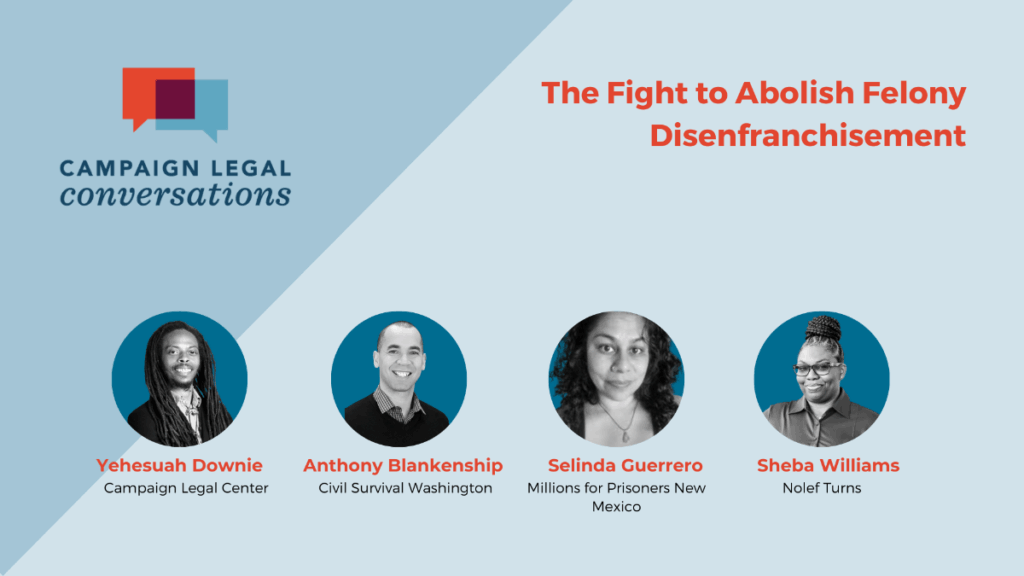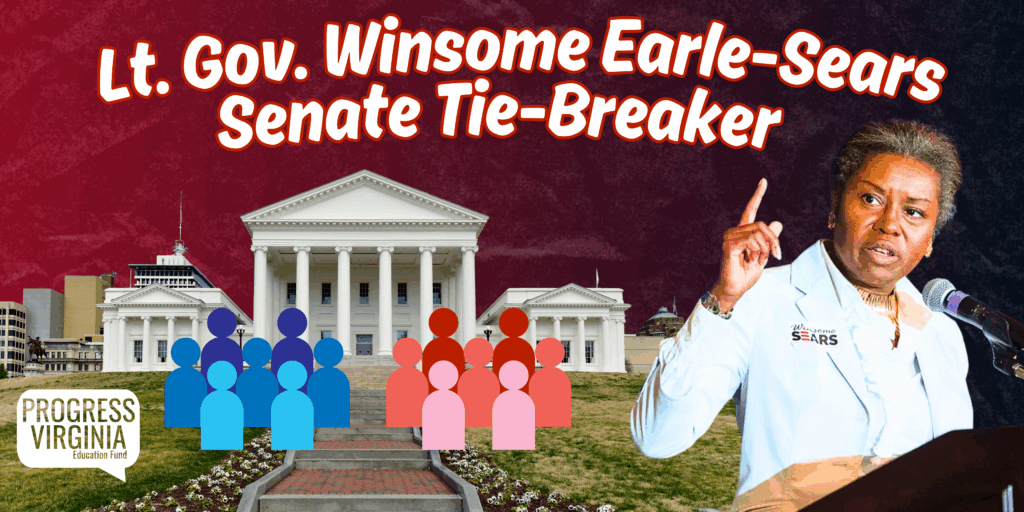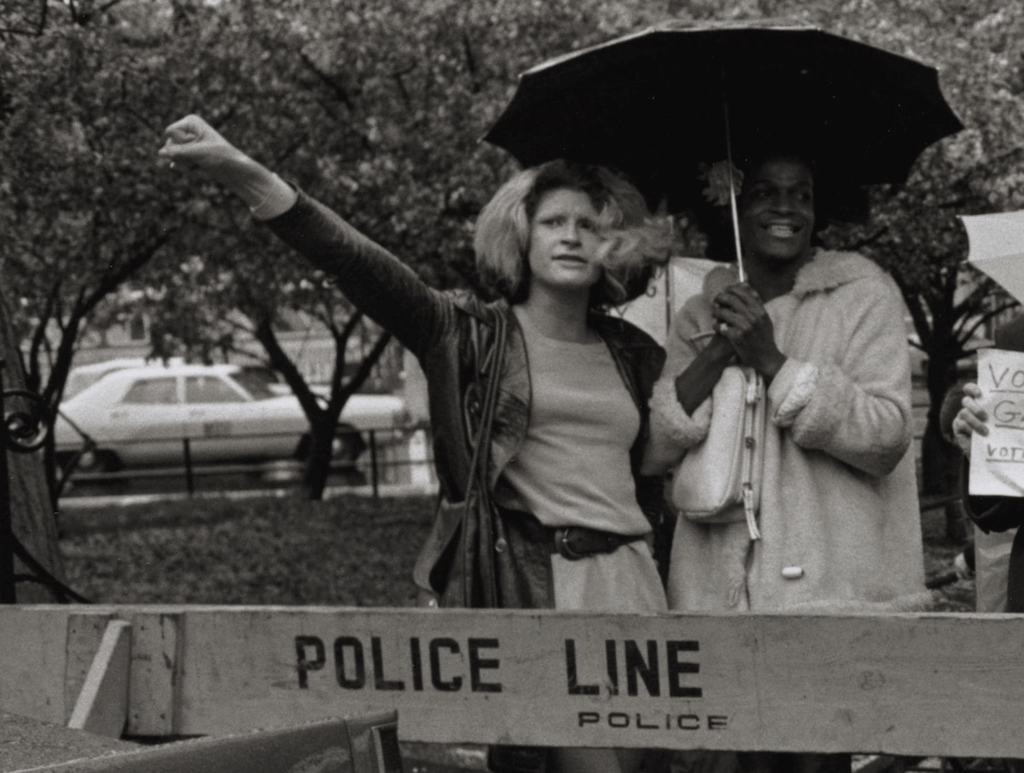Monday, July 21, 2025
2:00 PM ET/ 11:00 AM PT
Felony disenfranchisement, a Jim Crow relic which takes away an individual’s freedom to vote if they have been convicted of a felony, is a stain on our democracy. This practice excludes millions of Americans from participating in our elections depending on where they live, either because they have been disenfranchised under law or because of confusing or burdensome laws around restoring their voting rights.
 Campaign Legal Center’s Restore Your Vote team has been working alongside clients, partners and affected individuals in states across the country to fight back against felony disenfranchisement and help those in their communities restore their freedom to vote.
Campaign Legal Center’s Restore Your Vote team has been working alongside clients, partners and affected individuals in states across the country to fight back against felony disenfranchisement and help those in their communities restore their freedom to vote.
Panelists from states that have made progress in this fight will illuminate the historical context behind the practice of felony disenfranchisement; discuss the unique barriers faced by advocates for voting rights restoration; and highlight the strategies and tactics that are proving successful across the country.
🚨Register to Attend🚨
On July 21 at 2 PM ET, Campaign Legal Center, joined by local community leaders who have been working to combat felony disenfranchisement, will hold a conversation to explore how states across the country are making progress toward abolishing this practice and how other states can follow suit.

